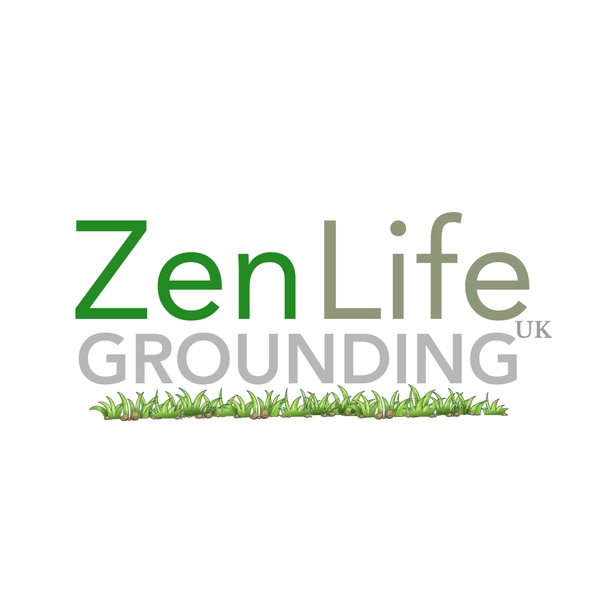In a world where detoxification methods are increasingly sought after for health and wellness, grounding, also known as earthing, has emerged as a natural approach to detoxify the body. But how effective is grounding in eliminating toxins from the body? This blog delves into the science behind grounding and its potential detoxifying effects.
What is Grounding?
Grounding involves direct contact with the earth's surface electrons by walking barefoot outside or using grounding systems indoors, such as grounding sheets or mats. This practice is based on the principle that the earth's surface possesses a limitless supply of free electrons, offering antioxidant effects when transferred to the body.
The Science Behind Grounding and Detoxification
The concept of detoxification through grounding centers around the body's electrical nature. The earth's negative charge can help neutralize free radicals—unstable molecules that can cause damage and inflammation in the body. By reducing oxidative stress, grounding may support the body's natural detoxification processes, aiding in the removal of toxins.
Reducing Inflammation
Inflammation is the body's response to injury and infection, but chronic inflammation can lead to the accumulation of toxins. Grounding has been shown to reduce chronic inflammation by neutralizing free radicals, potentially supporting the body's ability to detoxify more effectively.
Enhancing Circulation
Improved circulation is another purported benefit of grounding. By increasing blood flow, grounding may facilitate the efficient removal of toxins and the delivery of nutrients to cells, aiding in the body's natural detoxification process.
Supporting Sleep and Stress Reduction
Good sleep and reduced stress are essential for effective detoxification. Grounding can help regulate the body's cortisol levels, promoting a more restful sleep and reducing stress. These effects, in turn, support the body's natural detoxification pathways, as both adequate sleep and stress management are critical for the body's ability to detoxify.
Addressing Skepticism
While anecdotal evidence and some research support the detoxifying effects of grounding, skepticism remains. Critics argue that more rigorous scientific studies are needed to substantiate these claims. It's important for individuals to approach grounding as one component of a holistic health and wellness regimen, rather than a standalone detoxification solution.
Conclusion
Grounding offers a simple, natural way to potentially support the body's detoxification processes. By reducing oxidative stress and inflammation, enhancing circulation, and supporting sleep and stress reduction, grounding may complement traditional detox methods. As with any wellness practice, it's essential to combine grounding with a balanced diet, regular exercise, and a healthy lifestyle for optimal results.
FAQs on Grounding and Body Detoxification
Q: What does grounding mean?
A: Grounding, also known as earthing, refers to the practice of making direct contact with the earth's surface to tap into its natural, healing energy. This can be achieved by walking barefoot outdoors or using grounding products that mimic the electrical connection to the earth.
Q: How is grounding believed to detox the body?
A: Grounding is thought to detox the body by neutralizing free radicals, unstable molecules that can cause damage and inflammation in the body. The earth's surface has a negative electrical charge, and when you make direct contact with it, it's believed that you receive a supply of antioxidants from the earth that can neutralize these harmful free radicals.
Q: What scientific evidence supports the detox effects of grounding?
A: While the specific detox effects of grounding are still under investigation, some research has indicated that grounding can reduce inflammation and improve various markers of oxidative stress. However, more research is needed to fully understand grounding's detoxification effects on the body.
Q: Can grounding help with inflammation?
A: Yes, several studies have suggested that grounding can help reduce inflammation in the body. This is significant because inflammation is a common pathway for many chronic diseases, and reducing inflammation can help in managing these conditions.
Q: What are other health benefits of grounding?
A: Beyond potential detoxification and reduced inflammation, grounding is also associated with improved sleep, reduced stress and anxiety, improved circulatory health, and faster recovery from exercise-induced muscle damage.
Q: How often should I practice grounding for detox benefits?
A: While there's no one-size-fits-all answer, incorporating grounding into your daily routine—whether by spending time barefoot outdoors or using grounding products at home—can maximize potential health benefits. Even 30 minutes a day can make a difference for some people.
Q: Are there any side effects to grounding?
A: Grounding is generally considered safe for most people with minimal to no side effects reported. However, individuals with certain medical conditions or those using medical devices should consult with a healthcare professional before starting a grounding routine.
Q: How do grounding products work?
A: Grounding products, such as mats, sheets, and bands, are designed to simulate the electrical connection to the earth. They usually connect to the ground port of an electrical outlet or directly to the ground outside, facilitating the transfer of electrons from the earth to the body.
Q: Can grounding replace medical treatment?
A: While grounding can complement traditional medical treatments by potentially reducing symptoms and improving overall well-being, it should not replace medical advice or treatment from a licensed healthcare provider.
Q: Where can I learn more about grounding and its benefits?
A: For more information on grounding, consider exploring scientific journals, books, and websites dedicated to the study of grounding and earthing. Additionally, speaking with healthcare professionals knowledgeable about integrative medicine can provide valuable insights.

